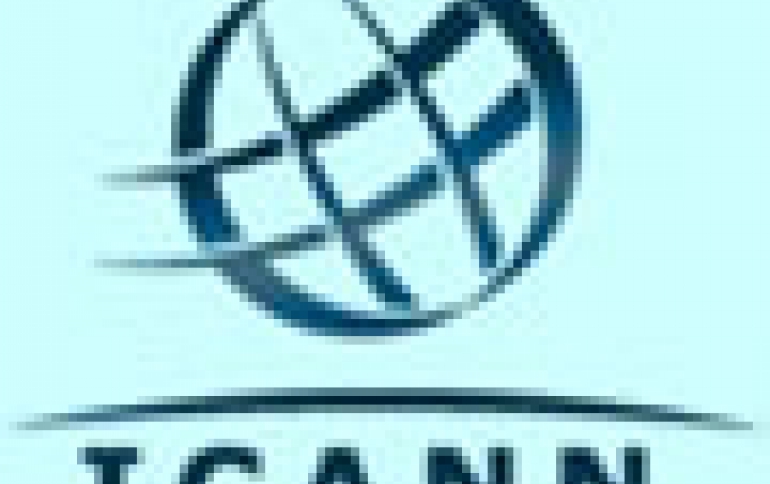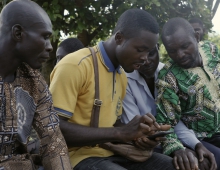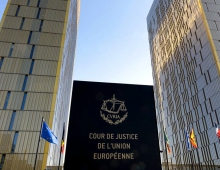
Biggest Expansion to Internet in Forty Years Approved for Implementation
Web regulators Thursday voted to allow the creation of thousands of new domain names, from .paris to .Pepsi, in one of the biggest shake-ups in Internet history.
The Board of ICANN today approved a recommendation that could see a whole range of new names introduced to the Internet's addressing system.
"The Board today accepted a recommendation from its global stakeholders that it is possible to implement many new names to the Internet, paving the way for an expansion of domain name choice and opportunity" said Dr Paul Twomey, President and CEO of ICANN.
A final version of the implementation plan must be approved by the ICANN Board before the new process is launched. It is intended that the final version will be published in early 2009.
"The potential here is huge. It represents a whole new way for people to express themselves on the Net," said Dr Twomey. "It's a massive increase in the 'real estate' of the Internet."
Presently, users have a limited range of 21 top level domains to choose from ? names that we are all familiar with like .com, .org, .info.
This proposal allows applicants for new names to self-select their domain name so that choices are most appropriate for their customers or potentially the most marketable. It is expected that applicants will apply for targeted community strings such as (the existing) .travel for the travel industry and .cat for the Catalan community (as well as generic strings like .brandname or .yournamehere). There are already interested consortiums wanting to establish city-based top level domain, like .nyc (for New York City), .berlin and .paris.
"One of the most exciting prospect before us is that the expanding system is also being planned to support extensions in the languages of the world," said Peter Dengate Thrush, ICANN's Chairman. "This is going to be very important for the future of the Internet in Asia, the Middle East, Eastern Europe and Russia." The present system only supports 37 Roman characters.
Upon approval of the implementation plan, it is planned that applications for new names will be available in the second quarter of 2009.
Some participants at the ICANN meet had voiced concerns about "cybersquatting" -- the risk that brand names, for example, could be usurped on the web.
To avoid chaos, Damilaville said the ICANN also adopted a motion designed to "limit the abusive registration of new domain names."
A non-profit organisation based in southern California, ICANN oversees the assignment of domain names and Internet protocol addresses that help computers communicate.
"The Board today accepted a recommendation from its global stakeholders that it is possible to implement many new names to the Internet, paving the way for an expansion of domain name choice and opportunity" said Dr Paul Twomey, President and CEO of ICANN.
A final version of the implementation plan must be approved by the ICANN Board before the new process is launched. It is intended that the final version will be published in early 2009.
"The potential here is huge. It represents a whole new way for people to express themselves on the Net," said Dr Twomey. "It's a massive increase in the 'real estate' of the Internet."
Presently, users have a limited range of 21 top level domains to choose from ? names that we are all familiar with like .com, .org, .info.
This proposal allows applicants for new names to self-select their domain name so that choices are most appropriate for their customers or potentially the most marketable. It is expected that applicants will apply for targeted community strings such as (the existing) .travel for the travel industry and .cat for the Catalan community (as well as generic strings like .brandname or .yournamehere). There are already interested consortiums wanting to establish city-based top level domain, like .nyc (for New York City), .berlin and .paris.
"One of the most exciting prospect before us is that the expanding system is also being planned to support extensions in the languages of the world," said Peter Dengate Thrush, ICANN's Chairman. "This is going to be very important for the future of the Internet in Asia, the Middle East, Eastern Europe and Russia." The present system only supports 37 Roman characters.
Upon approval of the implementation plan, it is planned that applications for new names will be available in the second quarter of 2009.
Some participants at the ICANN meet had voiced concerns about "cybersquatting" -- the risk that brand names, for example, could be usurped on the web.
To avoid chaos, Damilaville said the ICANN also adopted a motion designed to "limit the abusive registration of new domain names."
A non-profit organisation based in southern California, ICANN oversees the assignment of domain names and Internet protocol addresses that help computers communicate.





















